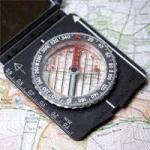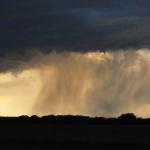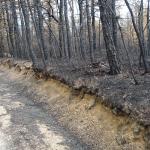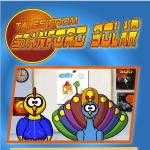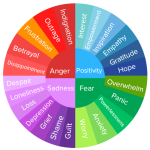Lesson Plans & Activities
Creating a Compass from a Magnet
Project EXTREMES lessons were intended to stand alone, but this lesson can be included in a unit on the Earth’s interior.
In this lesson, students create a compass and apply their reasoning about magnetism to how compasses work to help us navigate around the globe while utilizing the Earth’s magnetic field.
Lesson
Nature of science
Elementary School
Middle School

Precipitation Patterns Around the Globe
Project EXTREMES lessons were written to be stand alone lessons but can be incorporated into a larger unit.
Students apply their knowledge of the water cycle to investigate how annual precipitation patterns are related to geography and biology.
Lesson
Elementary School
Middle School

Soil Percolation: Where Does the Rain Go?
Project EXTREMES lessons were written to be stand alone lessons but can be incorporated into a larger unit.
This lesson activity has students conduct an experiment that reinforces one component of the water cycle.
Lesson
Elementary School

What Color is the Sun?
The comic book can be used in informal education settings or as introductions to the topics covered the Solar Dynamics Observatory curriculum.
This comic book was developed with the Stanford Solar Center as part of their comic series Tales from Stanford Solar and explores questions like: What color is the Sun? and How do we study the stars?
Lesson
Elementary School
Middle School

VR Expedition: MOSAiC Ice Camp
Take a virtual tour of the MOSAiC Ice Camp in this virtual experience. This is a stand-alone resource that is part of a MOSAiC VR collection.VR Experience
Polar Science
Elementary School
Middle School
High School
University/College
VR Expedition: MOSAiC Distributed Network
Take a virtual tour of the MOSAiC Distributed Network, Fedorov, in this virtual experience. This is a stand-alone resource that is part of a MOSAiC VR collectionVR Experience
Polar Science
Elementary School
Middle School
High School
University/College
Informal Audience
The Emotions Wheel
This activity is a stand-alone exercise part of seven activities from the Climate Mental Health Support Activities.
Emotion wheels have been a visual tool used by psychologists for decades to help people better understand and interpret their feelings. This activity is for people of all ages and can be done with family members, in a classroom, with friends, work colleagues, etc.Lesson
Elementary School
Middle School
High School
University/College
Informal Audience

Nature Appreciation
This activity is one of seven activities in the Climate Mental Health Support Activities.
In this lesson, students will play, explore, appreciate, and practice perspective-taking in nature. All of these actions help positively connect youth to nature, and instill an ethic of care for the environment.Lesson
Elementary School
Middle School
High School
University/College
Informal Audience

Connecting with Special Places in Nature
This activity is one of seven activities in the Climate Mental Health Support Activities.
In this lesson, students will take time to connect to a place that is special to them.Lesson
Elementary School
Middle School
High School
University/College
Informal Audience

Visioning Possibility
This activity is a standalone exercise that is part of one of seven activities from the Climate Mental Health Support Activities.
In this lesson, students will find inspiration from innovative solutions, envisioning a hopeful future and their role in it.Lesson
Elementary School
Middle School
High School
University/College
Informal Audience

Climate Solutions
This activity is a standalone exercise that is part of one of seven activities from the Climate Mental Health Support Activities.
In this lesson, students will participate in a short scavenger hunt to familiarize themselves with climate change mitigation strategies and solutions for decreasing heat-trapping emissions.Lesson
Elementary School
Middle School
High School
University/College
Informal Audience

